What is Water Belly in Chickens?
Have you ever noticed your chickens swelling up, especially around the abdomen area? Do they seem unwell, listless and show difficulty in breathing? You might be looking at a case of Water Belly or medically known as Ascites.
Water Belly in chickens is a condition where fluid accumulates in the abdominal cavity of the chicken, leading to an enlarged belly. It’s a serious health issue that can impact the overall wellbeing of your poultry flock.
Causes of Water Belly in Chickens
There are numerous factors that can lead to Water Belly in chickens. These can be broadly classified into:
Genetic Factors
Certain breeds are predisposed to develop Ascites. Breeds that are bred for rapid growth like broilers are particularly susceptible due to the strain their growth puts on their bodies, especially the heart and lungs.
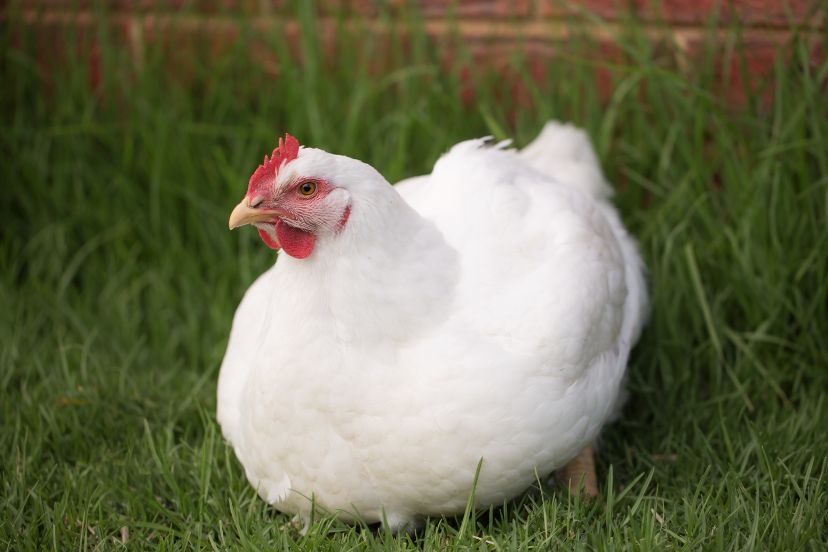
If you’re raising broilers or other fast-growing breeds, it’s super important to keep an eye out for any signs of Water Belly. After all, we want our feathered friends to be as healthy and happy as possible, don’t we?
Environmental Factors:
Poor Ventilation
Chickens, like any other living beings, need clean, fresh air to thrive. Poor ventilation in chicken coops or poultry houses can lead to a buildup of harmful gases such as ammonia from chicken droppings. These gases can affect the respiratory health of chickens, putting additional strain on their hearts and, in turn, increasing the risk of conditions like Ascites.
High Altitude
Living at high altitudes can also put a lot of stress on a chicken’s body, especially their cardiovascular system. At high altitudes, the oxygen level in the air is lower. To compensate for the lower oxygen levels, the chicken’s heart has to work harder to pump blood and supply enough oxygen throughout the body. Over time, this extra workload can lead to heart failure, causing fluid to build up in the abdomen, resulting Water Belly in chickens.
Temperature Fluctuations
Chickens are sensitive to changes in temperature. They can handle cold better than heat, but sudden fluctuations can be stressful for them. Too much heat can cause chickens to pant heavily, a sign they are struggling to keep cool. This excessive panting increases their respiratory and heart rates, putting added pressure on their bodies and potentially leading to heart failure and Water Belly.
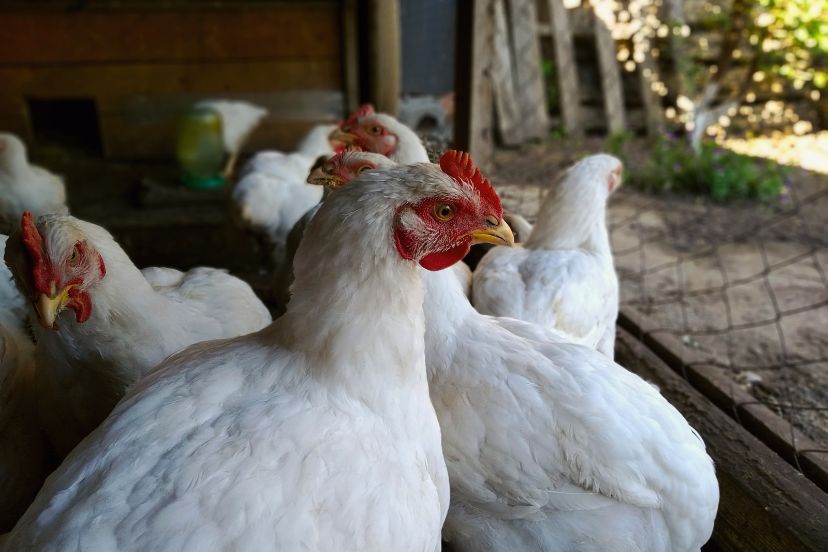
Ensuring that your chickens have an environment with good ventilation, an appropriate altitude setting, and stable temperatures will help maintain their good health and decrease the risk of Water Belly.
Nutritional Factors:
The food your chickens consume plays a pivotal role in their overall health and well-being. An unbalanced diet can lead to a variety of health issues, including Ascites.
High Salt Intake
While chickens need some amount of salt in their diet for healthy functioning, excessive salt can lead to serious health problems. High salt intake causes water retention in the body as the chicken’s system attempts to dilute the excess salt. This leads to increased blood volume, which puts additional pressure on the heart, and over time can cause heart failure and fluid buildup in the abdominal cavity, resulting in Ascites.
High Protein Intake
A diet excessively high in protein can also cause problems. Chickens, especially those bred for meat like broilers, are often fed a high-protein diet to promote rapid growth. While protein is crucial for their development, an excess can put a strain on the bird’s body, particularly the liver and heart. This is because the process of metabolizing protein produces a significant amount of waste products which need to be eliminated from the body. If the liver and heart are unable to cope with this additional workload, it can lead to fluid accumulation in the abdomen.
A balanced diet is key for the overall health and longevity of your chickens. This includes the correct ratios of protein, carbohydrates, vitamins, minerals, and a regulated amount of salt. Always ensure you’re feeding your chickens appropriately for their age, breed, and purpose (layers, broilers, etc.) and avoid over-supplementation that can lead to dietary imbalances.
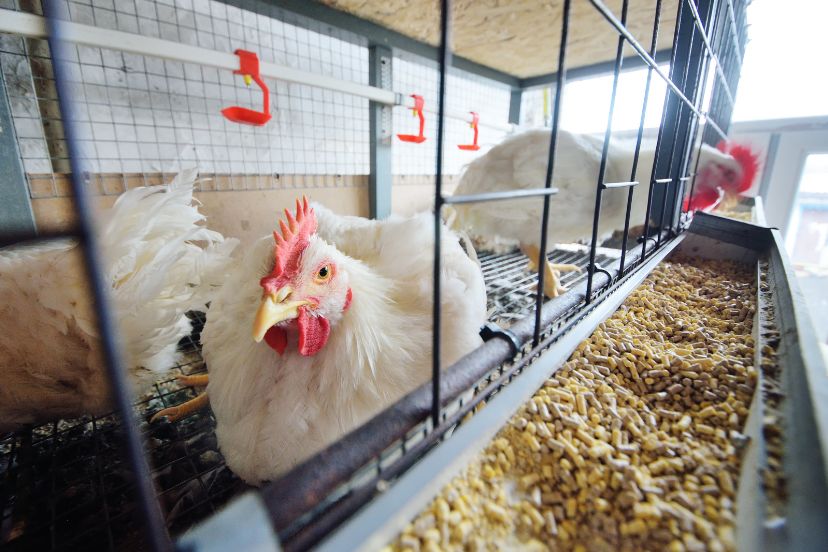
If you’re unsure that your chickens are receiving unbalanced diet, consult with a vet or a poultry nutrition expert for advice on the right nutrition plan for your flock.
Diseases and Infections:
A number of underlying health conditions and infections can contribute to the development of Ascites, or Water Belly, in chickens.
Heart Diseases
Cardiovascular diseases in chickens can result from genetic factors, diet, or environmental conditions. A weakened or malfunctioning heart struggles to pump blood efficiently throughout the chicken’s body. This can lead to increased pressure in the blood vessels, which may cause fluid to leak into the chicken’s abdominal cavity, causing Ascites. Heart conditions that can lead to Ascites include congestive heart failure and right ventricular dilation.
Liver Diseases
The liver plays a vital role in removing toxins, metabolizing nutrients, and managing waste products in the body. Liver diseases or disorders can hinder these functions, causing a buildup of waste or toxins, which can contribute to fluid accumulation in the abdomen. Liver issues can arise due to genetic factors, poor diet, or exposure to toxins.
Infections
Certain viral, bacterial, or parasitic infections can also lead to Ascites. For instance, infections that cause inflammation or damage to the heart or liver can indirectly contribute to Water Belly. Infectious Bronchitis and Avian Pathogenic Escherichia coli (APEC) are known to cause damage to the kidneys and heart, leading to fluid retention and Ascites.
Proper care, routine check-ups, and maintaining a clean and stress-free environment for your chickens can help prevent these diseases and infections. If you suspect your chicken might be suffering from an illness, it’s essential to consult a vet immediately for diagnosis and treatment. Early detection and treatment can potentially save your chicken’s life and prevent the condition from spreading to other birds in your flock.
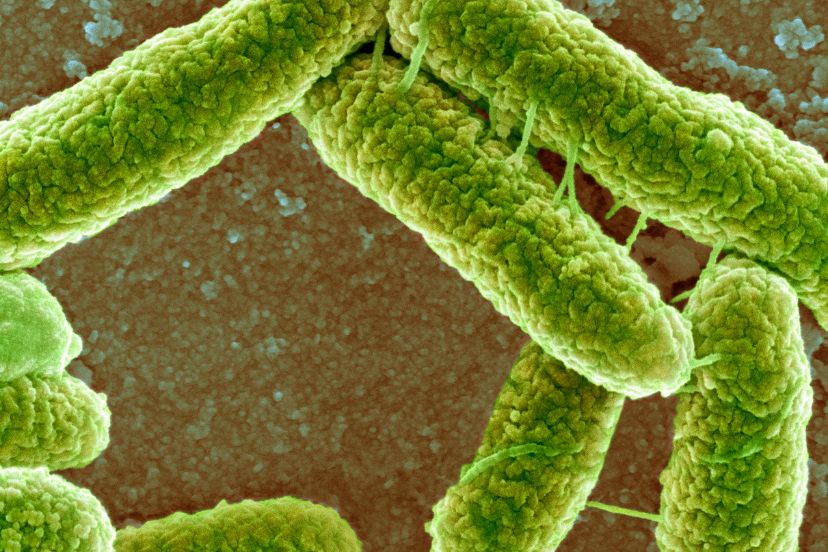
APEC is a strain of E. coli bacteria that is particularly harmful to poultry. The infection often starts in the respiratory system but can spread, causing systemic infections throughout the bird’s body.
Symptoms of Water Belly in Chickens
Ascites, or Water Belly, can present several visible symptoms in your chickens. Recognizing these symptoms early can help in timely diagnosis and treatment, potentially saving your chicken’s life.
Swollen Abdomen: One of the most noticeable symptoms of Ascites is a swollen or distended abdomen. As the condition’s name, ‘Water Belly,’ suggests, this is caused by the buildup of fluid in the abdominal cavity. The chicken’s belly may appear larger than normal and might feel tight or hard when touched.
Difficulty in Walking: As the chicken’s abdomen swells, it can create pressure on the legs and hinder movement. Chickens may struggle to walk, may stand with their legs spread wide, or may adopt a ‘penguin-like’ posture due to the distended belly. They may also sit more often or become less active.
Labored Breathing: Fluid buildup in the abdomen can also put pressure on the lungs, making it difficult for the chicken to breathe normally. You might observe your chicken breathing heavily, panting, or gasping for air. There could also be an increased respiratory rate.
Reduced Appetite: Chickens with Ascites often show a decreased interest in food. The pressure in the abdomen may cause discomfort, reducing the chicken’s desire to eat. This lack of appetite can lead to weight loss over time, despite the swollen belly.
Lethargy: Another common symptom is lethargy or decreased activity. Chickens with Ascites may seem less energetic, spend more time sitting or lying down, and show less interest in normal activities like foraging or socializing.
If you observe any of these symptoms in your chickens, it’s crucial to seek veterinary attention immediately. While some of these symptoms can also be indicative of other health issues, a vet can diagnose the condition accurately and recommend appropriate treatment or management options.
How is Water Belly Diagnosed?
Diagnosing Ascites, or Water Belly, in chickens involves a combination of physical examination and further diagnostic procedures.
Physical Examination
A physical examination is the first step in diagnosing Ascites. The vet will carefully examine the chicken, paying special attention to any visible signs like a swollen abdomen, difficulty walking, or labored breathing. They may also feel the chicken’s abdomen to check for abnormal swelling or fluid accumulation.
Diagnostic Tests
Depending on the results of the physical examination, the vet may recommend further diagnostic tests. These could include:
Blood tests can help detect underlying issues such as liver or heart diseases that might be contributing to the Ascites. They can also help rule out other conditions that might present similar symptoms.
An ultrasound can be an effective tool for diagnosing Ascites. This imaging test can visualize the chicken’s internal organs and detect any fluid buildup in the abdomen. It can also help assess the condition of the heart, liver, and other organs.
Fluid Analysis: In some cases, the vet might extract a sample of the fluid from the chicken’s abdomen for analysis. This can help determine the nature of the fluid and provide clues about the underlying cause of the Ascites.
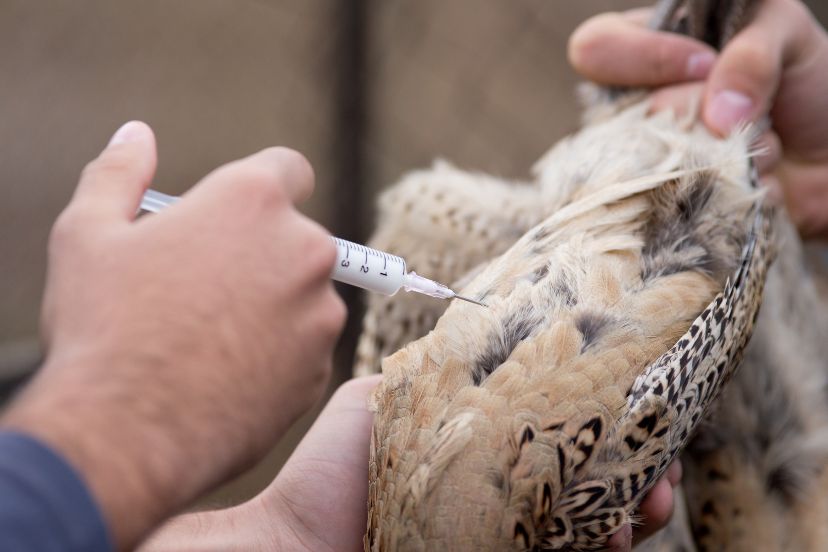
Remember, if you suspect Ascites in any of your chickens, it’s crucial to consult a vet promptly. The sooner the condition is diagnosed, the better the chances of managing it effectively and ensuring the well-being of your chicken.
Treatment Options for Water Belly
If your chicken has been diagnosed with Ascites, or Water Belly, several treatment options can be considered.
Professional Veterinary Intervention
Professional veterinary intervention is vital for effectively managing Water Belly in chickens. Here are a couple of treatment options a vet might consider:
Fluid Drainage: One of the immediate treatments for Ascites is to drain the excess fluid from the chicken’s abdomen. This can provide quick relief from symptoms such as breathing difficulty and discomfort. The vet may use a sterile needle to carefully remove the fluid. However, this procedure only addresses the symptom (the fluid buildup) and not the underlying cause.
Treating the Underlying Cause: Addressing the underlying cause of the Ascites is crucial for long-term management and prevention of recurrence. The treatment will depend on what’s causing the Ascites. This could range from medications for heart or liver disease, antibiotics for bacterial infections, or dietary adjustments for nutritional imbalances.
Home Treatments
Home treatments primarily focus on preventing and managing Ascites. They should always be done under the guidance of a veterinarian.
Dietary Adjustments: As high salt and high protein diets can contribute to Ascites, making appropriate dietary changes can help manage and prevent this condition. Reducing salt intake and ensuring a balanced diet can help alleviate strain on the heart and liver, reducing the risk of Ascites.
Keep in mind, any significant changes to your chicken’s diet should be done gradually and under the guidance of a vet or a poultry nutrition expert. Abrupt changes in diet can cause stress and other health problems in chickens. While home treatments can support the overall health of your chickens, it’s important to consult a vet if you notice any signs of Ascites. Early diagnosis and professional treatment are crucial for the best outcome.
Prevention Measures for Water Belly
Preventing Water Belly in chickens involve taking measures to reduce risk factors and keep your chickens as healthy as possible.
Balanced Nutrition
Nutrition plays a crucial role in the overall health of your chickens. Feeding a balanced diet can help prevent many health problems, including Ascites.
Avoid feeds high in salt or protein, as they can put excessive strain on the chicken’s heart and liver, leading to fluid buildup. Instead, opt for well-balanced poultry feeds that provide the right blend of nutrients your chickens need for healthy growth and development.
Proper Housing Conditions
The conditions in which you keep your chickens can significantly impact their health. Poor ventilation, overcrowding, and temperature fluctuations can stress your chickens and contribute to Ascites.
Ensure the coop is well-ventilated and has enough space for all your chickens to prevent overcrowding. Keeping a consistent, comfortable temperature in the coop can also help reduce stress and keep your chickens healthy.
Regular Check-ups and Disease Control
Regular veterinary check-ups can help detect any potential health issues early, including diseases that might lead to Ascites. Routine vaccinations can also help prevent certain diseases known to cause Ascites, such as Infectious Bronchitis and APEC.
Implementing good biosecurity practices, like quarantine for new birds and disinfecting the coop regularly, can also help control disease spread and protect your flock’s health.
While these measures can significantly reduce the risk of Ascites, they cannot entirely prevent it. Always keep a close eye on your chickens’ health and consult a vet promptly if you notice any signs of illness.
FAQs
What is Water Belly in Chickens?
Water Belly, also known as Ascites, is a condition where fluid accumulates in the chicken’s abdominal cavity.
What causes Water Belly in Chickens?
Water Belly can be caused by various factors including genetic predisposition, environmental conditions, nutritional factors, and certain diseases or infections.
What are the symptoms of Water Belly?
Symptoms include a swollen abdomen, difficulty walking, labored breathing, reduced appetite, and lethargy.
How can Water Belly be treated?
Treatment may involve professional veterinary intervention such as draining the fluid or home treatments such as dietary adjustments. However, addressing the underlying cause is crucial.
Can Water Belly be prevented?
Prevention measures include balanced nutrition, proper housing conditions, and regular check-ups and disease control.




